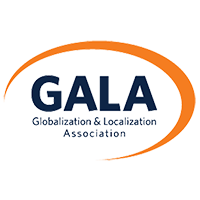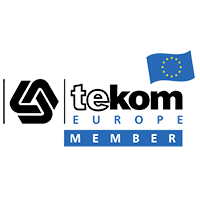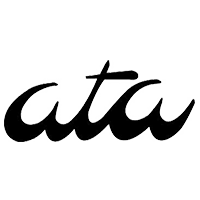Purchasing Translation Services: 10 Points To Keep In Mind
If you work in international business, you may need to purchase foreign language translations from time to time, but find you’re mystified by the process. A little bit of knowledge can go a long way towards a successful outcome. Here are Argos Multilingual’s “Top Ten” list of factors that have a direct impact on price, turnaround time and quality.
1. Words count – a great deal.
Many factors can come into play when pricing a translation project, but the number one item is the number of words to translate. When authoring a document which will need to be translated, do what you can to be succinct. Edit text prior to translation, create modules of text that can be translated once and stored for re-use.
2. Translation memory is a tool that can save you money, but it’s not a panacea.
Computer Aided Translation programs such as Trados and MemoQ are tools translators use to store and re-use translated text. This can save both money and time while maintaining consistent translation quality. Some additional things to consider in order to make the most of translation memory are:
- You should always aim to send your language service provider editable source files like Word, Desktop publishing formats like FrameMaker and InDesign or XML. (Try not to send them scanned PDF’s or other non-editable formats because this often results in “file preparation” fees)
- You can maximize savings in documents which contain text which is repeated exactly; if you plan to translate documentation for your updated products, by only editing existing text where absolutely necessary, you can save money on repeated text.
- Translations stored in translation memory are only as good as the original translation, so be selective when hiring linguists.
3. Electronic files are important.
Not all electronic files are created equal when foreign language is involved. Some file formats support diacritical marks, foreign character sets and hyphenation rules better than others.
How you lay out your document also makes a difference:
For example – placing words inside flat graphic formats like jpg or bmp adds cost, as your Language Service Provider will need to extract that text for translation. A better process is to have editable callouts in your desktop publishing file.
Also, when translating from English, languages such as German will normally expand by about 30%. If you need to copy your document page-by-page, it is sensible to leave plenty of space around text on each page.
If you’d like some hints about different file types and layout which facilitates translation, talk to your translators.
4. Changes matter.
Alterations and additions part-way through a project will incur revision costs. It’s always better to wait until your document is final to start on the translation. And once the content has been translated and stored in a translation memory, even minor changes which might not alter the meaning, like replacing the word “dealer” with “representative” within a previously-translated sentence mean it is no longer an exact match, and will need to be checked. Lots of little changes can be a very effective way of increasing costs and reducing the discount from Translation Memory.
5. You get what you pay for.
You may try to circumvent the cost of professional translation by going cheap – maybe using a free translation web service or a high school French teacher. Neither is a good option if you want your international customers to engage with your business.
Translation is a professional craft requiring more than simple fluency in two languages. Professional linguists need subject matter knowledge, writing and grammatical skills, education, experience, professional translation tools and talent. The best translators are paid accordingly, which means there are no such things as “bargain” translations.
6. Professionals are a better choice than dealers or agents.
Professional linguists are likely to be a better choice than your in-country personnel to perform translations for your international business. True, dealers or agents know your product and the language, but translation is almost certainly not their job. They have other important work to do and their livelihood may depend upon sales commissions, meaning that your translation will be near the bottom of their priority list. Plus, they may not possess the necessary skills required for accurate and thorough translation.
7. Haste makes waste.
When you rush a translation project, quality suffers and costs rise. Impossibly-fast turnaround times do not allow sufficient time to research the subject matter, or do a thorough editing. Give your translator the time required to do it right. You’ll be glad you did.
8. The more information, the better.
It won’t cost any more to send reference materials along with the text to be translated, and it will help your translator do a better job. Provide copies of any existing translations, glossaries, lists of industry terms, product catalogs – anything that will help clarify what’s being translated and provide context. Be sure to answer linguists’ questions promptly when they arise. The more useful information you can provide, the better the translation will be.
9. Some content is harder to translate than others.
A standard business letter is one thing; a technical manual for a piece of machinery is another animal altogether. Parts lists can be particularly challenging. If a linguist doesn’t have experience translating automotive parts, they will struggle to translate terms like “brake spider mounting bolt” correctly.
Equally, advertising and creative texts can require reflection, a deep understanding of a brand’s messaging voice and extensive editing. This is because what works in one locale won’t necessarily work in other cultures. Expect to pay more for creative translations.
10. You’re in charge – don’t let your reviewers hold you hostage.
Often businesses need in-country personnel to review and approve translated content before it is published. It is not unheard of for a translation to be completed in 2 weeks only to take three months for an in-country reviewer to return comments. Don’t let company politics or jam-packed schedules interfere with getting your translation completed. If your reviewer is non-responsive, pick somebody else or look at intelligent alternatives which could help speed up approval.
For example, Argos has an online tool called Argos Global Review. This makes it easy for non-translation professionals to review translations in a side-by-side bilingual format through their browser. There are even document previews available for some file formats.
Additionally, Argos can offer specialized subject matter review. For this service, we agree the profile of linguist needed, recruit suitable candidates, and your business gets to choose from a series of sample CV’s. This has proved a very popular and effective way of getting localized content published in a timely manner where local offices haven’t the bandwidth to carry out the reviews themselves.
So, that’s Argos Multilingual’s list of 10 important things to know when you purchase translation services. As they say, knowledge is power. Perhaps these tips will empower you the next time you prepare to launch a translation project. Contact Us for further support in your next translation project!




